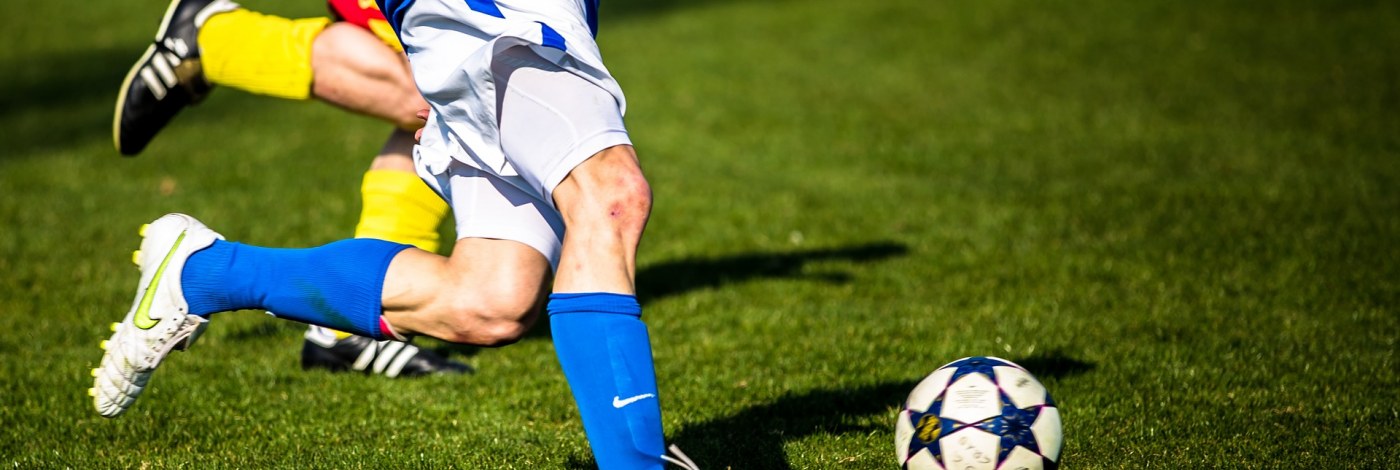The coronavirus was a black swan event for the sports industry. From North America’s National Basketball Association and Europe’s football leagues to the Tokyo 2020 Olympic Games, the pandemic ground global sport to a halt.

Postponed events are starting up again as governments around the world loosen their lockdowns, but there is a broader upheaval coming, and a recognition that the industry needs well-trained talent to steer it through the current crisis to the dawn of a new era.
“Significant decisions need to be made now that will shape the industry’s future,” says Simon Chadwick, Director of Eurasian Sport at emlyon business school. “We need strategic thinkers who will plan ahead and address the big challenges we are facing.”
Covid-19 highlights how vulnerable sports teams are to risks, and the overreliance many have on income from match day tickets, hospitality and spending during events. These revenue streams have dried up while costs have not. “The pandemic has raised questions around what sport is in the 21st century,” says Chadwick.
His course aims to deliver future leaders who are pioneers. The MSc in Sports Industry Management at emlyon business school is taught in Paris and Shanghai (with potential study trips to London, Munich and the French Alps). Students learn how to understand the dynamics of global sports, which are fast changing in the pandemic, through internships with brands that helped design the program, including Adidas and Patagonia (big advertisers for sports teams).
However, KPMG forecasts that the Big Five football leagues and clubs in England, Spain, Germany, France and Italy will collectively sink nearly €4bn in lost match day, broadcasting and sponsorship revenue. Many clubs have negotiated pay cuts with their top athletes. Even star footballers Lionel Messi of Spain’s Barcelona and Cristiano Ronaldo at Italy’s Juventus have taken wage cuts or deferrals.
Many sports organizations are small and don’t have much expertise in financial management, nor innovation, creativity. The coronavirus crisis has led to calls for greater regulatory oversight of sports teams, with closer scrutiny of accounts and stricter limits on spending.
This is the moment for young sports business managers to make their mark.“Can you help sport change and do things differently?” Chadwick asks prospective students. “The industry needs agile learners who can respond quickly and cope with ambiguity.”
Many organizations have had to adapt or die: USA Rugby and MSK Zilina, the reigning football champions of Slovakia, have declared bankruptcy in recent weeks. Bailouts are planned, but some clubs have found ways to stay afloat, even those without deep cash reserves.
Chadwick cites how broadcasters, with so much free airtime, are playing re-runs of the greatest ever sports games and taking audience polls of the best players. “These organizations have used nostalgia to sustain their engagement with fans through lockdown,” he says. “There is a more pronounced and significant shift online than before coronavirus. People are consuming more sport digitally. Social media is an important part of that.”
These trends have led to the emergence of new types of sport: Formula E, the all-electric motorsport series launched in 2014, has built a fanbase from scratch using e-gaming and social media to attract a younger audience. This is the type of evolution that the students on Chadwick’s MSc hope to lead.
“Digital sport is becoming more important in all its forms,” he says. “There is a great deal of caution and concern among fans about going back to sporting events. Research suggested that as many as 70% of fans do not intend to watch a game at a stadium until a Covid-19 vaccine is widely available.”
While the sports industry has been forced to evolve, so too has the MSc in Sports Industry Management at emlyon business school. In April when Covid-19 struck, Chadwick began revamping how he teaches the course. He has become more of a curator of content that is now often delivered digitally and taught by more industry practitioners (campus teaching has resumed).
“We have been challenged by the pandemic to think in a different way,” he says. “Last month we spent four hours discussing sport in India and used technology to bring five industry professionals from the country, including the director of endorsements for Red Bull, into the classroom virtually.”
The content has also evolved, with a greater emphasis placed on innovation and entrepreneurship, which reflects emlyon business school’s pioneering spirit. “We have added courses on sporting mega-trends to future-gaze where the industry is heading,” Chadwick says. “We have also shifted the balance from knowledge towards skills and their practical application, whether that’s artificial intelligence, social media or sports investing.”
Despite the significant challenges the industry is going through, Chadwick is optimistic on his students’ job prospects, with big sporting fixtures starting back up around the world. “Sport has become a big sector that in many countries accounts for upwards of 2% of GDP. Sport won’t disappear, it will recover and there will be jobs for graduates,” he says.
Now could be the right moment to enroll, he notes, to ride out the recession and graduate in 18 months, hopefully into the post-pandemic recovery and just in time for big sporting fixtures like the 2022 FIFA World Cup in Qatar and 2022 Winter Olympics in Beijing.
“Students will be graduating into a period of intense activity. There is huge optimism for the future of the industry,” says Chadwick. Graduates tend to work at sports teams and clubs, governing bodies, events companies, consulting firms and advertising agencies.
Others work at internet companies like Amazon, which are buying the rights to broadcast some sports fixtures. They are seen as a threat to the traditional broadcasters because they offer fans cheaper, more tailored deals. Viewers are moving towards a pay-per-event model, but slowly. Graduates can be at the heart of this shift.
Despite the gloom, sport is a passion that unites nations, attracting billions of people watching on screens. An endorsement of the industry’s longevity can be seen in big-ticket sports deals even during the pandemic.
UK football club Manchester City’s parent company, for example, bought Belgian soccer club Lommel in May. Meanwhile, Saudi Arabi has been snapping up cheap sports assets in this downturn through its sovereign wealth fund. In April it reportedly purchased a sizable stake in Live Nation Entertainment, the world’s biggest live entertainment business.
“What we will see is almost something Darwinian: survival of the fittest,” says Chadwick. “The weaker players will fall, and the stronger will get more powerful.”



